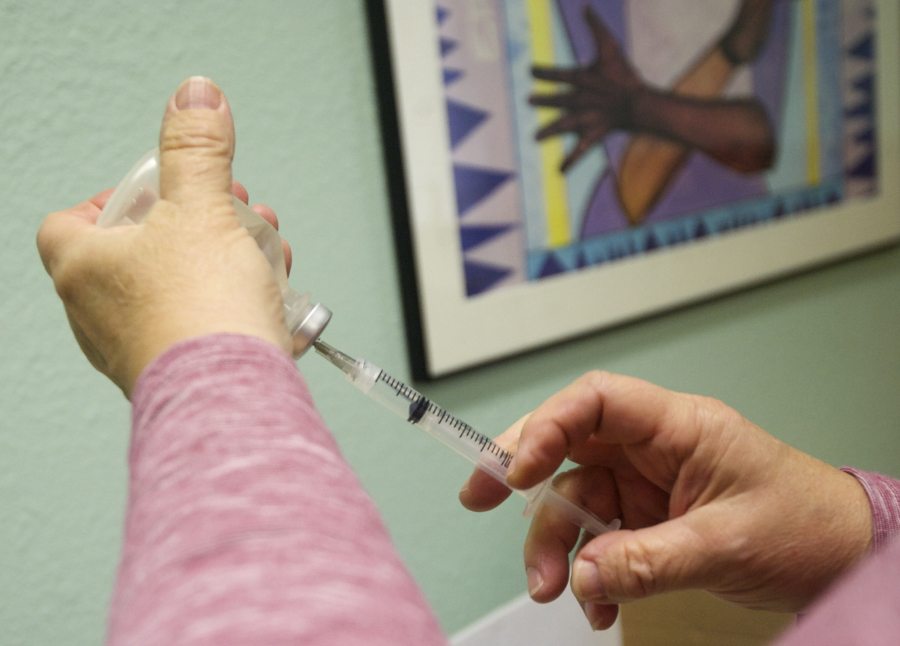To help curb opioid overdoses, Lifeline Connections is starting to distribute the antidote naloxone to clients of its sobering center.
The drug rehabilitation and mental health provider carries the injectable form of the drug; a kit includes two syringes, two doses of naloxone, a mouth protector, a pair of plastic gloves, an alcohol swab and instructions.
People can get it when they come to the sobering center, a 20-bed facility at the Center for Community Health, 1601 E. Fourth Plain Blvd., Vancouver.
The plurality of Lifeline’s clients, about 44 percent, say opiates are their primary substance. Within the sobering center, though, opiate users account for about 29 percent of the people who come in to sober up; methamphetamine users account for 43 percent.
The Centers for Disease Control and Prevention reported that more people died from drug overdoses in 2014 than in any other year on record, and most of those deaths involved an opioid. Heroin and prescription pain pills — as in morphine, codeine, oxycodone, methadone, Vicodin, Dilaudid, fentanyl, etc. — are all opioids.
Most new heroin users had already been abusing prescription opioids.
Preventing deaths
Nationwide, 47,055 people died of drug overdoses in 2014, including 979 people in Washington.
Naloxone can stop or reverse the effects of an opioid overdose, but cannot be used to get high and is not addictive.
The CDC surveyed facilities distributing naloxone kits and found that about 83 percent of people administering the drug are drug users — people who are on the scene and witnessing an overdose.
One of the first kits Lifeline gave out was administered by an addict to save the life of another addict, said Shannon Edgel, a spokeswoman for Lifeline.
Other sources
To start, Lifeline assembled 18 kits. It adds to other efforts around the county to increase access to naloxone.
Two years ago, Clark County Public Health began offering the drug through its syringe exchange program.
Local Fred Meyer stores sell both injectable and nasal spray versions of the drug without a prescription. In February, Walgreens announced it, too, will stock the drug prescription-free at more than 5,800 of its pharmacies, including all Washington stores.
And the Clark County Sheriff’s Office got a federal grant so deputies on the road could carry and administer the drug.




